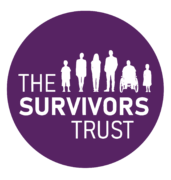Mobile phones, tablets and computers store a lot of information about the websites we visit, messages sent, online phone calls, purchases, banking, and many other activities.
If you’re concerned about other people knowing you’ve searched for information from websites such as CRASAC or any other organisation, there are a few things you can do to help cover your tracks.
Open an ‘Incognito’ Window
You can prevent your browser from storing cookies or information about website visits and recording your browsing history by opening an ‘incognito’ window.
Information about how to browse privately for each of the commonly used browsers:
Chrome
Firefox
Microsoft Edge
Safari
Opera
While browsing..
If you are worried someone may oversee what you are doing, CRASAC’s website has a ‘Leave Quickly’ button to the left of every page. This takes you to the Google homepage when you click on it.
It’s also worth keeping another tab or document open if searching on a PC, so you can quickly switch away from the website to something else.
Clear your web browser’s history
You can clear some evidence of sites you have visited but this won’t necessarily remove all records from your computer’s memory. Someone else using the same device may notice that passwords or web addresses are no longer in their history.
If clearing your browser history isn’t something you do regularly it might cause suspicion so make sure you continue to use the shared device for routine activities.
Information on deleting your browsing history from commonly used browsers:
Chrome
Firefox
Internet explorer
Safari (for iphone, ipad or Mac)
Opera









